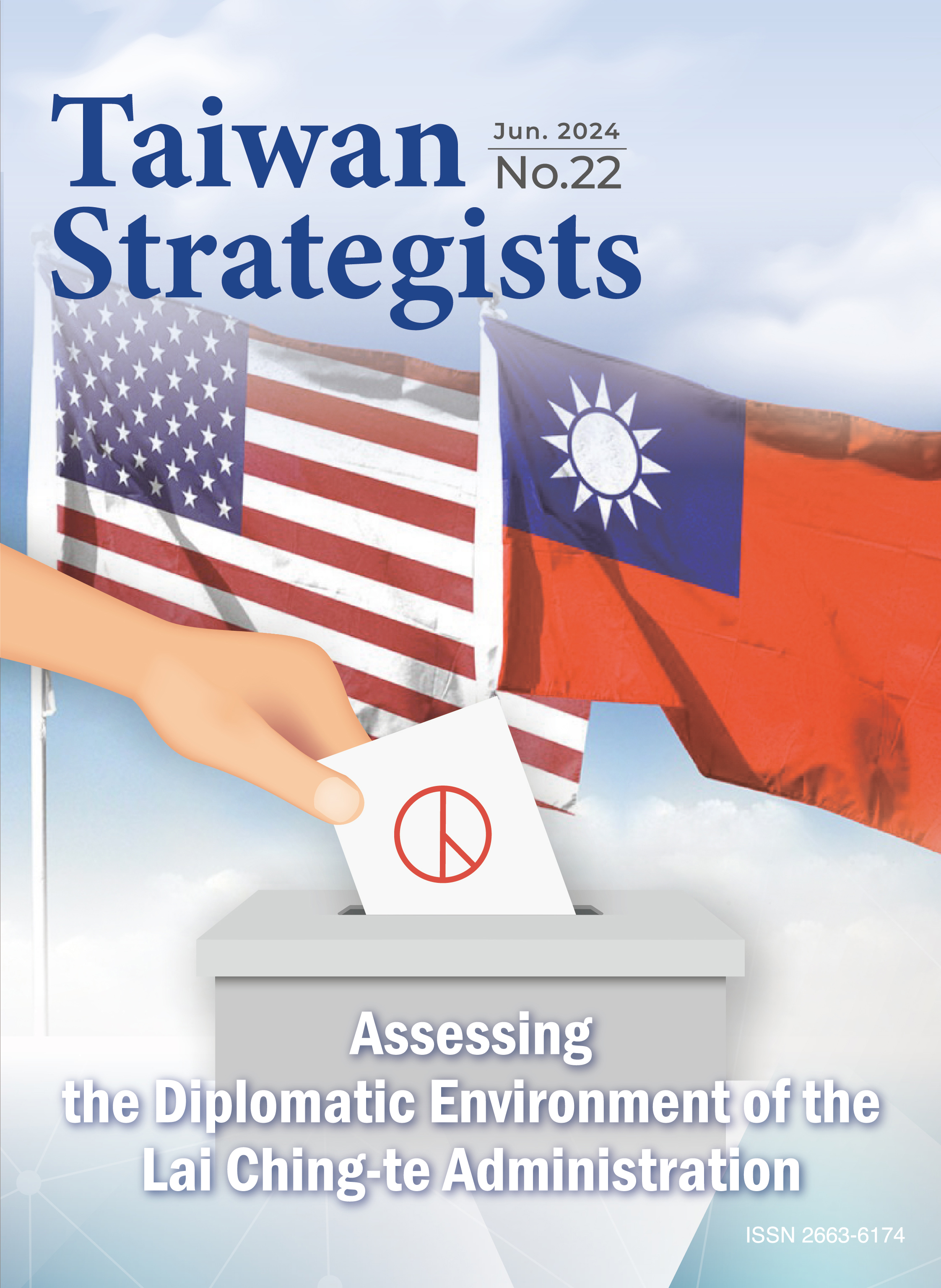Taiwan Strategists No. 22
- PDF1. The Impact of the U.S. Election on Taiwan-U.S. Relations Opportunities and Prospects
- PDF2. Strategizing the New Southbound Policy in President Lai’s ‘Shin-Lai’ (Trustworthy) Diplomacy Making Taiwan Indispensable and More Reliable
- PDF3. Europe’s Strategic Choices and Their Implications for Taiwan Under the Shadow of the Russo-Ukrainian War
The Impact of the U.S. Election on Taiwan-U.S. Relations: Opportunities and Prospects
Alexander B. Gray
Chief Executive Officer,
American Global Strategies
Sean Patrick Calabria
Director of Research,
American Global Strategies
Abstract
Taiwan has emerged as the preeminent flashpoint for U.S. national security interests over the preceding half decade. The People’s Republic of China’s (PRC) increasingly belligerent rhetoric and behavior have raised the prospect of a conventional conflict between the world’s two superpowers. The results of the 2024 U.S. Presidential election will significantly impact how the U.S. navigates its relationship with Taiwan and how Washington will develop and implement a strategy for the broader Indo-Pacific region. This paper explores the possible future of U.S.- Taiwan relations following the U.S. Presidential election in November. It also identifies critical areas of opportunity for Washington to strengthen its relationship with Taipei and how Taiwan policy can fit into a grand strategy for preserving and promoting U.S. interests, in the Indo-Pacific and globally, against PRC malign activity.
Keywords: U.S. President, Election, U.S.-Taiwan Relations, China, Geopolitics
Strategizing the New Southbound Policy in President Lai’s ‘Shin-Lai’ (Trustworthy)
Diplomacy: Making Taiwan Indispensable and More Reliable
Alan Hao Yang
Professor, Graduate Institute of East Asian Studies,
National Chengchi University, Taiwan;
Executive Director, Taiwan-Asia Exchange Foundation (TAEF), Taiwan
Abstract
This article outlines the core rationale of President Lai Ching-te’s foreign policy: a value-based or “Shin-Lai” (Trustworthy) diplomacy. It begins with a brief review of the key elements of the Trustworthy diplomacy and outlines its core values and future prospects. It then summarizes the four major characteristics of Lai’s diplomacy — that is, value-based, prosperity-oriented, domestic-international-nexus as its blueprint, and implementing via innovative actions. It then looks at the implications and possible innovations of President Lai’s continuation of former President Tsai Ing-wen’s foreign policy by using Southeast Asia and South Asia as examples to explore the possible prospects of this Trustworthy diplomacy. This article then reviews Lai’s rhetoric on the New Southbound Policy (NSP) over the past years. The main argument of this article contends that “strategizing” the NSP will solidify President Lai’s Trustworthy diplomacy. It concludes with research findings and relevant policy recommendations.
Keywords: Lai Ching-te, New Southbound Policy, New Southbound Policy Plus, Value-Based Diplomacy, Shin-Lai Diplomacy
Europe’s Strategic Choices and Their Implications for Taiwan Under the Shadow of the Russo-Ukrainian War
Marcin Jerzewski
Head of Taiwan Office, European Values Center for Security Policy
Abstract
The Russo-Ukrainian War has significantly reshaped Europe’s strategic landscape and presented the EU with crucial strategic choices pertaining to resource allocation and its competence framework. Crucially, Russian aggression has prompted EU member states to increase defense budgets and adjust fiscal policies amid rising security concerns. The war has also highlighted the strategic importance of addressing hybrid threats, leading to the EU’s establishment of Hybrid Rapid Response Teams to counter cyber attacks, disinformation, and other non-conventional warfare tactics. Meanwhile, the EU’s Strategic Compass for Security and Defense aims to enhance the bloc’s capabilities by 2030, but challenges remain due to internal divisions and insufficient focus on threats from China. The EU’s evolving security posture has implications for its relations with Taiwan, emphasizing the need for cooperation on hybrid warfare and democratic resilience amidst rising geopolitical tensions.
Keywords: European Union, Russo-Ukrainian War, Common Security and Defense Policy, European Parliament Elections, Taiwan-EU Relations





